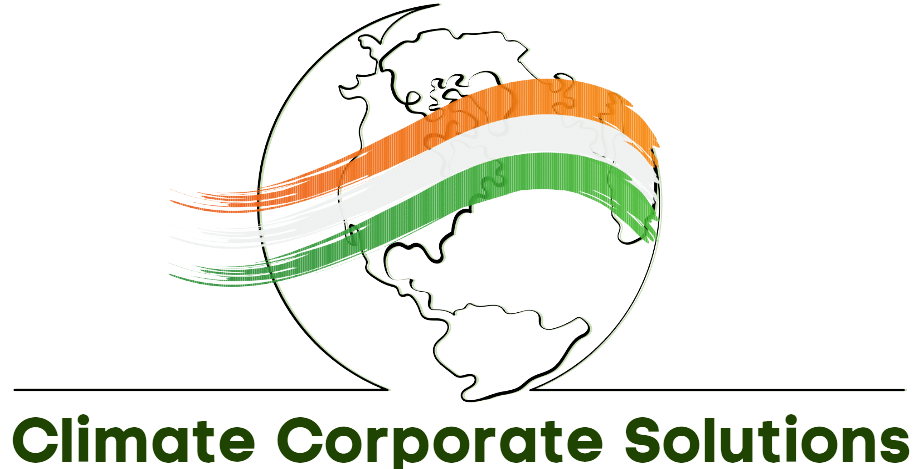Training and Awareness Programs
In the ever-evolving landscape of sustainability and climate change, staying informed and proactive is no longer just an asset; it’s a necessity. At Climate Corporate Solutions (CCS), we recognize the power of knowledge, its dissemination, and the importance of moulding responsible stakeholders for tomorrow. Our training and awareness programs are meticulously designed to bridge the knowledge gap and foster a culture of sustainability across various sectors.
1. Core Workshops on Climate Change
Some vital areas under the broad umbrella are as follows:
A. Understanding the Science: From the greenhouse effect to global warming potentials, this module provides a foundational understanding of the science behind climate change.
B. Mitigation Strategies: A deep dive into the techniques, strategies, and best practices to mitigate climate change impacts.
C. Adaptation and Resilience: Preparing businesses and communities for the changing world, focusing on resilience building and adaptive strategies.
2. Sustainable Development Goals (SDGs) Training
3. Circular Economy and Waste Management
A. Circular Economy 101: Understanding the shift from ‘take, make, dispose to a more circular, sustainable approach.
B. Waste Management Best Practices: Exploring techniques to reduce , reuse, and recycle, aiming for zero waste.
4. Sustainable Supply Chain Management
5.Renewable Energy and Carbon Footprint
A. Transitioning to Renewables: The benefits, challenges, and strategies for transitioning to renewable energy sources.
B. Carbon Accounting: Measuring, monitoring, and strategies to reduce an organization’s carbon footprint.
6. Biodiversity and Conservation
A. Why Biodiversity Matters: Understanding biodiversity’s intrinsic and extrinsic value in our ecosystems.
B. Conservation Techniques: Best practices in conserving, restoring, and promoting the sustainable use of terrestrial ecosystems.
7. Social Responsibility and Stakeholder Engagement
Crafting CSR Policies:
A. Strategies to ensure Corporate Social Responsibility is ingrained in the company’s DNA.
B. Engaging Stakeholders: Effective methods to communicate, engage, and involve stakeholders in sustainability endeavors.

Methodology
Our training sessions are not limited to lectures. We believe in an immersive learning experience which combines case studies , group discussions, hands-on activities, and Q&A sessions. Moreover, post-training assessments and feedback loops ensure continuous improvement in content delivery.
Tailored Programs Recognizing that every organization and community is unique, we also offer customized training modules to cater to your needs, ensuring maximum relevance and impact.
Why Climate Corporate Solutions?
With a rich legacy of expertise, a pulse on global trends, and a commitment to shaping a sustainable future, our training programs don’t just impart knowledge; they inspire action. Partner with us and arm yourself with the ability to drive meaningful change.
INDUSTRY SPECIFIC TRAINING PROGRAMS
Industry-Specific Training Programs at Climate Corporate Solutions.
While the overarching principles of sustainability apply universally, the nuances vary significantly across industries. We at Climate Corporate Solutions have carefully curated training modules that cater to various sector’s specific needs and challenges.
1.Agricultre and Agrobusiness
Sustainable Farming Practices:
A.From crop rotation to organic farming, understanding practices that enhance productivity while preserving the environment.
B.Water Conservation Techniques: Strategies to optimize irrigation, reduce water usage, and maintain soil health.
2.Manufacturing and Production
Green Manufacturing:
A.Introduction to processes that minimize waste and energy consumption.
B.Eco-friendly Packaging: Exploring sustainable materials and packaging designs to reduce environmental footprint.
3. Real Estate and Construction
Green Building Standards:
A.An overview of green building certifications and the importance of sustainable infrastructure.
B.Sustainable Construction Materials: Dive into eco-friendly, durable, and economically viable materials.
4. Retail and Consumer Goods
Sustainable Sourcing:
A.Ensuring the products sold are ethically sourced and produced sustainably.
B.Reducing Retail Carbo Footprint: Techniques to minimize emissions from retail operations, form energy-efficient store designs to green logistics.
5. Information Technology
Green IT Practices:
A.Understanding how to minimize electronic waste, optimize energy use, and promote recycling in IT infrastructures.
B.Sustainable Software Development: Crafting software solutions prioritizing energy efficiency and reduced resource usage.
6. Energy and Utilities
Transition to Renewable Sources:
A.Grasping the intricacies of transitioning from fossil fuels to renewable energy sources.
B.Energy Efficiency Techniques: Implementing practices to reduce energy consumption and operational waste.
7. Hospitality and Tourism Eco-tourism Principles:
A.Crafting travel experiences mindful of local ecosystems and cultures.
B.Sustainable Hospitality Management: From waste reduction in hotels to sourcing local produce for kitchens, ensuring the hospitality industry treads lightly on the environment.
8. Healthcare
Waste Management in Healthcare:
A.Proper disposal techniques for medical waste to ensure both environmental and human safety.
B.Green Healthcare Infrastructure: Building and maintaining healthcare facilities that are energy-efficient and sustainable.
9. Transportation and Logistics
Green Logistics:
A.Techniques to reduce the carbon footprint of transportation, from optimizing routes to transitioning to electric vehicles.
B.Sustainable Fleet Management: Strategies for maintaining an efficient, eco-friendly, and economically viable fleet.
10. Financial Services
Green Finance:
A.Introduction to financial products that support environmental sustainability, like green bonds.
B.Sustainability in Banking Operations: Minimizing the environmental footprint of banking operations, from paperless banking to energy-efficient infrastructure.

